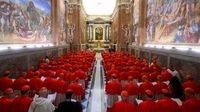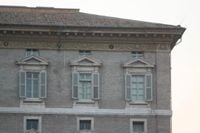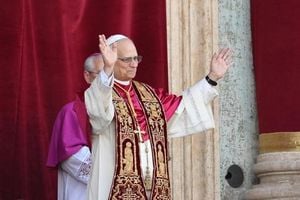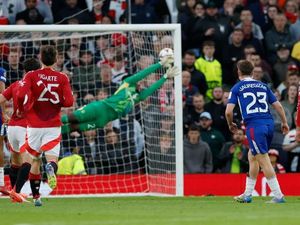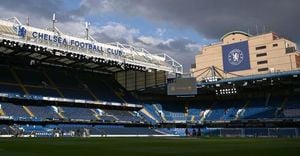The world is watching the Vatican closely as the conclave to elect a new leader of the Catholic Church is underway, following the death of Pope Francis on April 21, 2025. The conclave commenced on May 7, 2025, with the first vote taking place that evening, but it did not yield a result, as indicated by the black smoke seen rising from the Sistine Chapel. The anticipation is palpable, with four votes scheduled for May 8, 2025, two in the morning and two in the afternoon, as the cardinals work to find a successor to Francis, who served from March 13, 2013, until his recent passing at the age of 88.
Historically, the process of electing a pope has varied significantly in duration. In the past, some elections have stretched on for years. For instance, the longest papal election lasted an astonishing 33 months, from 1268 to 1271, culminating in the election of Pope Gregory X. However, the recent trend has seen conclaves conclude within a matter of days. The current conclave is expected to follow suit, with hopes that a new pope will be named shortly.
As the cardinals gather, the atmosphere is reminiscent of past elections, where the sight of black smoke has often signaled a lack of consensus among the electors. In the 20th century, the process of electing a pope became more streamlined, with the last conclave in 2013 lasting just two days before Jorge Mario Bergoglio was elected as Pope Francis. Will the current conclave be as swift?
Following the death of Pope John Paul I in 1978, a similar conclave took place, which also lasted only a few days. It was on October 16, 1978, that the world witnessed the election of Cardinal Karol Wojtyła, who took the name John Paul II, marking a historic moment as the first non-Italian pope in 455 years. His election was a surprise to many, as he emerged from a field of candidates that included several Italian cardinals.
When Wojtyła was elected, the announcement was met with a mix of disbelief and joy, especially in Poland, where his election was seen as a beacon of hope during a time of political oppression under communist rule. The phrase "Habemus Papam!" (Latin for "We have a pope!") echoed through St. Peter's Square, a moment that has become etched in the annals of history.
Fast forward to May 2025, and the current conclave is poised to continue this tradition of momentous change. The procedures governing the election are outlined in the apostolic constitution established by John Paul II, which permits the election of any baptized male Catholic. However, tradition dictates that the new pope is typically selected from among the cardinals.
Among the contenders, or papabili, for the papacy in 2025 are several prominent figures. Pietro Parolin, the 70-year-old Secretary of State for the Vatican, and Matteo Maria Zuppi, the 69-year-old President of the Italian Bishops' Conference, are frequently mentioned as potential successors. Other notable candidates include Robert Sarah, Luis Antonio Tagle, and Fridolin Ambongo, all of whom have garnered attention for their leadership within the Church.
The conclave operates under a veil of secrecy, with the cardinals voting in isolation to avoid outside influence. This tradition dates back to the 13th century, with the first conclave in its modern form occurring in 1118. The significance of this process cannot be understated, as the election of a new pope can have profound implications not only for the Catholic Church but also for global politics.
As the world awaits the announcement of the new pope, it is essential to reflect on the legacy of Pope Francis. His pontificate was marked by a commitment to dialogue, social justice, and outreach to marginalized communities. His passing has left a significant void, and the cardinals are now tasked with finding a leader who can continue this mission.
The anticipation surrounding the conclave is palpable, with many hoping for a swift resolution to the election. The black smoke that rose after the first vote serves as a reminder of the challenges that lie ahead for the cardinals. However, history has shown that the Church has a remarkable ability to adapt and evolve during times of transition.
In summary, the conclave of 2025 is a pivotal moment for the Catholic Church, one that will shape its future direction and impact millions of believers worldwide. As the cardinals prepare for the upcoming votes, the world watches closely, eager to learn who will emerge as the next leader of the Catholic Church and how they will navigate the complex landscape of modern faith.
